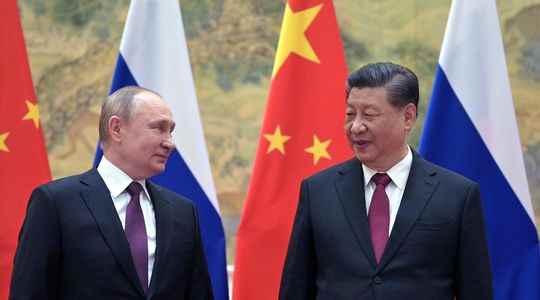What do the Russian war in Ukraine, Chinese pressure in Taiwan and the South China Sea archipelagos, and Turkish provocations in Greek and Cypriot territorial waters have in common? Revisionism. In geopolitics, a revisionist power (a term not to be confused with Holocaust denial) seeks to revise treaties and international agreements that it represents as unfair and having been detrimental to it, particularly at the border level.
At present, the most violent expression of this revisionism obviously comes from Moscow. For Vladimir Putin and the Russian nationalists, the great disaster goes back to the fall of the Soviet Union – even, for the most dogmatic, to that of the last tsarist empire in 1917 -, the Russian president having always affirmed that he had acted of “the greatest geopolitical catastrophe of the 20th century”. In fact, the unilateral declaration of independence by the Baltic countries and the three Transcaucasian republics in 1991, then the accession to sovereignty, within the concerted framework of the Community of Independent States, the Republics of Central Asia or Moldova, broke up the empire, but it was the independence of Belarus, and especially of… Ukraine, that was going to exasperate Russian nationalism. Because in his eyes, this immense space (although already independent from 1917 to 1922) embodies the cradle not only of original Russia, but also of its national religion, Orthodoxy. Despite its official recognition by Russia of Yeltsin in 1991, his successor will deny its legitimacy and authenticity before launching his troops to “liberate” it from Western decadence and “Nazism”, four months ago. This Russian revisionism was already illustrated in 2008 in Georgia with the uprooting of Abkhazia and South Ossetia and support for subservient regimes (before next annexation?) in Belarus and Transnistria (Eastern Moldova). It remains to be seen how far he is ready to go in this revision of the past…
In all three cases, a certain prosaic
For China, the so-called “century of humiliation”, which covers the period from the first Opium War of 1835 to the ultimate Western attacks of the 1940s, constitutes one of the major revanchist themes of communist power since the proclamation of the People’s Republic in 1949 by Mao Zedong to recent speeches by Xi Jinping. This century will have corresponded to unequal treaties. From 1841 to the First World War, London, Paris, Berlin, Washington and Tokyo imposed concessions and other very unfavorable commercial conditions on the declining Qing Manchu dynasty under military threat. However, if the stigmata of these treaties have disappeared, this is not the case with that of Aigoun signed in 1858 with Tsarist Russia, which deprives China of vast areas of Manchuria and eastern Siberia located to the east of the Amur River, and an immense seafront. Naturally, with regard to Russian power, Beijing does not officially claim these territories, but, in the name of rejecting these past humiliations, the regime is pursuing an imperialist policy from Kashmir to the Spratly and Paracel archipelagos via the Japanese archipelago of Senkaku (or Diaoyu), and, of course, Taiwan.
As for the Islamo-nationalist power of Erdogan, he condemns the Treaty of Lausanne of 1924 which, if it marked the recognition by the Western powers of the full Turkish sovereignty, left under Greek sovereignty the essential of the insular and archipelagic zones. of the Mediterranean facades of the new state.
In all three cases, it should be noted that a certain prosaism accompanies the respective quest for identity of the three regimes. On the one hand, these claim a return to the border at very different times (the Tsars, the Qing empire, Atatürk); on the other hand, the coveted areas turn out to be very well endowed with natural resources (wheat, oil, gas). Of course, other States maintain a painful memory linked to recorded territorial losses; Bolivia has never digested its eviction from the Pacific coast in favor of Chile, Argentina claims the Falklands (las Malvinas), Syria has long wanted to recover the sandjak of Alexandretta from the hands of Turkey. But these aspirations no longer take the form of assumed irredentism. While in Ukraine, it kills every day abundantly…
